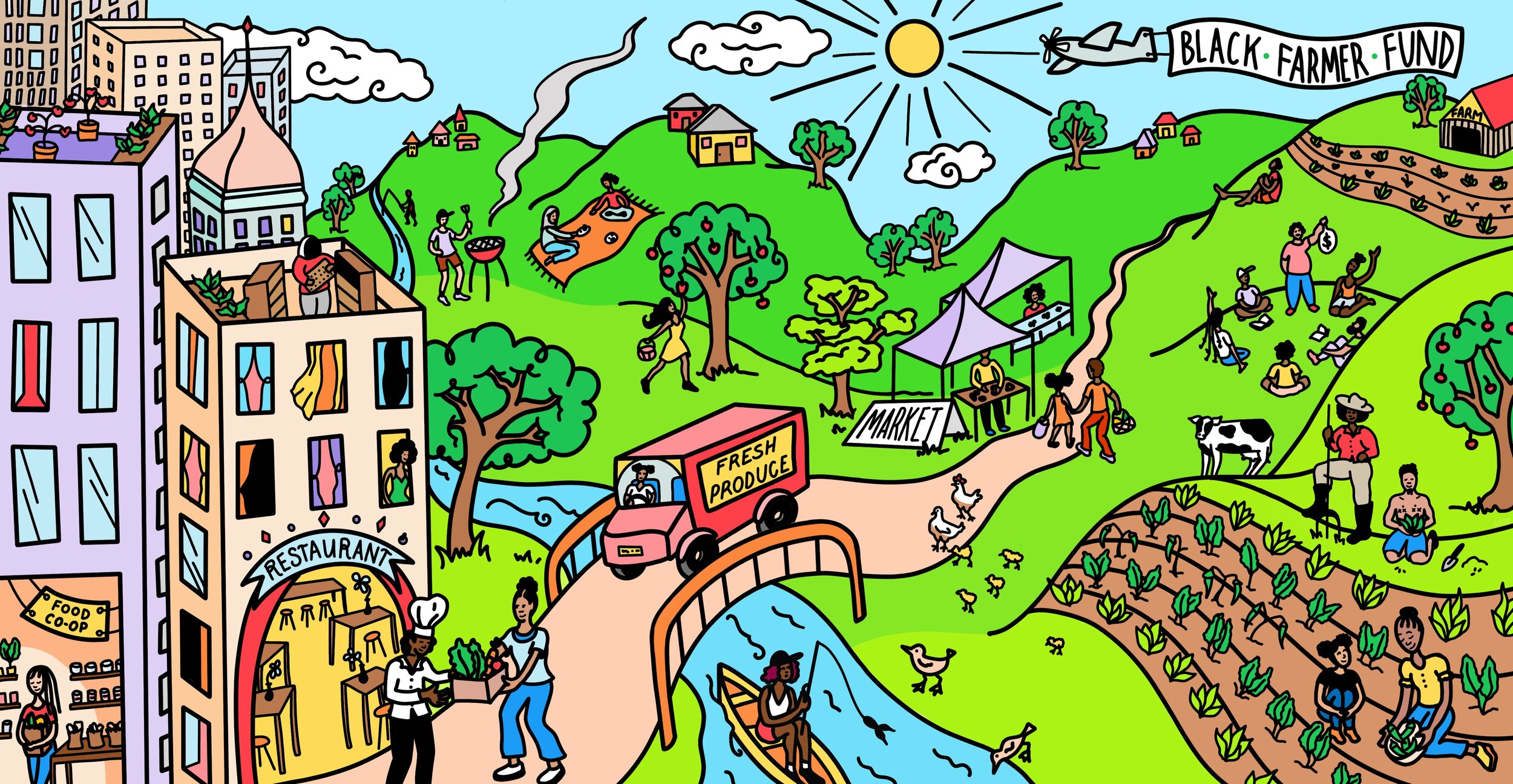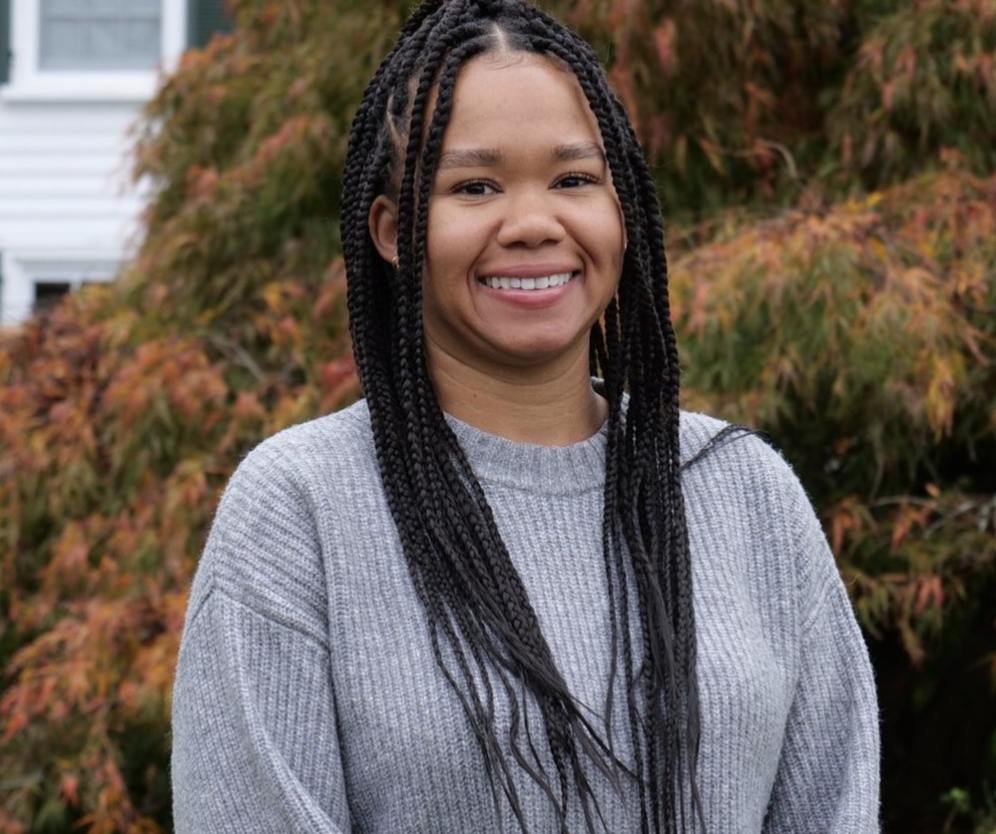Young, Black, and Buying A Home
By: Christina Reese
Edited by: Onyx Ramírez
This blog post contains the personal opinions and reflections of the author and is not representative of the voice of the organization.
In 2021, my partner and I decided to ride the waves of a major risk - purchasing a single-family home in an unfamiliar city. Our desire to transition from living in a major city was coupled with the dream of a life we thought would be full of new guarantees. Not only did the idea of saving money with a mortgage appeal to us, but we were also especially looking forward to being landlord-free. An opportunity to build equity and create community, especially after a rough year for us all, seemed like a fresh start. While we have started to see some of these desires come to fruition, it has certainly been a learning experience!
Historically, we knew this transition would be monumental as a young Black couple in our late 20s - early 30s. According to the US Treasury Dept., “Racial disparities in homeownership emerge early in the lifecycle and persist throughout. In 2019, white households, no matter the age of the household head, had homeownership rates at least 10 percentage points higher than Black and Hispanic households.” The inequities are intended to uphold the racial wealth gap that is the basis of the disparity in the standard of living experienced by many Black American communities.“In honor of Mental Health Awareness Month, it's important to uplift the ways that we - those of us committed to social change, ecological care, and Black and Indigenous liberation - can and must love one another better.”
It is important to note that home and land “ownership” must be used with the acknowledgment that in the US we reside on native land and the earth is our mother. The piece of paper we have exchanged money for, our deed, is part of a complex system that has caused harm for many BIPOC communities.
As a child, my parents taught us the importance of home ownership, especially as Black folk who have been systematically excluded from financial opportunities through traditional banking and government resources. They encouraged me to invest in quality vs quantity. It’s better to have one quality item than to have a handful which won’t last over the next ten years. And this requires sometimes uncomfortable patience. This set a foundation to look forward to the autonomy and security home ownership would provide.
“For younger households, homeownership facilitates wealth accumulation early in their working years, which builds on itself and can later be used to pay for unexpected expenses, kids’ education, or retirement…For older households, homeownership is a key source of retirement stability—one study shows that homeowners have flat or increasing net wealth in retirement as opposed to renters, who have a faster rate of asset decumulation.[6]”
Urban spaces wherein Black and Brown communities primarily reside have also experienced extreme gentrification shifts, pushing them out of their homes and creating housing instability for many. In the last few years, there have been sharp demographic changes in major cities such as Brooklyn, Los Angeles, Oakland, Chicago, and (everywhere else, it seems). Along with the changing demographics come the change in community offerings. Coffee shops and dog parks have been startlingly inserted into local neighborhoods which have historically struggled to feed their communities.
Overall, gentrification pushes city natives, which are overwhelmingly Black and Brown, out of their homes due to rising costs of living and rent prices.Our goal in buying our own was to find some stability amidst the rapidly changing landscape for young Black adults looking to build some wealth of our own.
One area I’ve grappled with is how we can create wealth for ourselves without disenfranchising other communities. As a young Black homeowner I understand there are impacts to communities with the shifts in neighborhood demographics, property value and the flux of commerce, such as addition of shops and storefronts.“For any harm I have caused you in thought, word, or deed, intentionally or unintentionally, I ask for your forgiveness.
The US Treasury Department also acknowledges that “past government policies supported white homeownership while excluding many Black households from similar benefits.[7] As an example, there is evidence that the Federal Housing Administration rarely insured loans in low-income, urban neighborhoods, where most Black Americans lived in the 1930s.[8] This exclusionary behavior prevented many Black households from owning homes and likely contributes to the persistence of racial homeownership gaps today given the positive association between parental and child homeownership.”
While the current market can seem difficult to enter, especially for many first-gen homeowners, there are some resources available to folks considering taking on the housing market. There are many grants available to first-time homeowners that we took advantage of when we first bought our home. Our lender was able to provide specific grants to waive many of the fees that can come with buying a home. It is important to note that many awards are specific to household income, so be in communication early with your future vendor to evaluate your eligibility. It’s better to have an idea of how much must be saved before making assumptions about what is possible. As a Black community, there is value in providing transparency to future homeowners. Though real estate is public record, the process to close on a home is complicated and overwhelming! I challenge current homeowners to truly be helpful in providing insight to the future generations.
In addition to the grants we received, we are also thankful that we have amazing neighbors, which can make all the difference, especially when moving to an unfamiliar area. They have provided insight, support, and recommendations for everything from contractors to how to use a snow blower. We have certainly been blessed with the number of folks who have reached out to support our needs. It has been a true depiction of teamwork as Buffalo is known as the “City of Brotherly Love.”The transition has also propelled us toward taking action in our community as active and informed voters looking to actively shape our community.
It’s also worth mentioning the creative undertaking that has come with the purchase. Especially for our starter home, the door to remodeling and renovating was opened the day we moved in. My first project was removing our old carpets, which, although time-consuming and effortful, allowed us to discover and treat the beautiful wood floors that laid underneath (Side note: it’s a shame how many carpeted floors have covered timeless oak in my area.) Painting is also a relatively inexpensive way we’ve begun to spruce up our home with a major payout, as well as little commitment. One special aspect of being a young person committed to building our perfect space has been the access to online resources like Youtube, which gave me the confidence I needed in my determination to update our home. Purchasing an older home was idealized through Instagram and TikTok videos; however, it was a taxing process. I had to prepare myself and be patient – I was not going to receive immediate results. Slowly but surely, my mental health has been soothed as we pursue this ongoing progress. My grandfather was a carpenter, so maybe it runs through my blood.
One resource we found shares some practical tips for the average first-generation homeowner to keep in mind when buying their first home. In addition to these tips, do your best to find those in your community that you can call neighbors. By caring for one another and fostering a sense of community, you can create the ideal home that you've always dreamed of.


